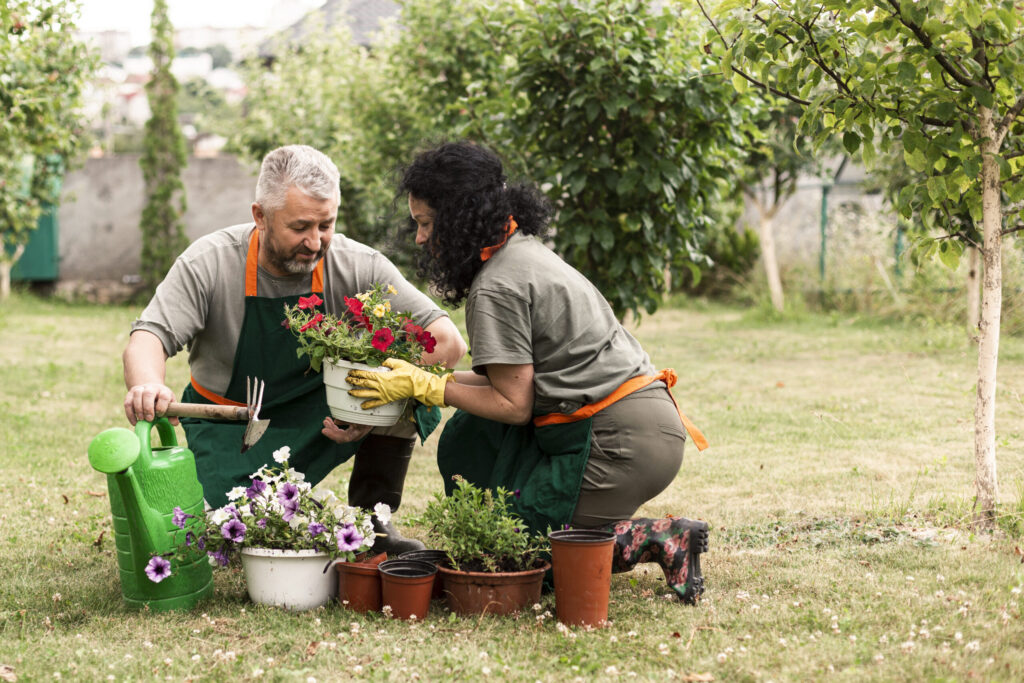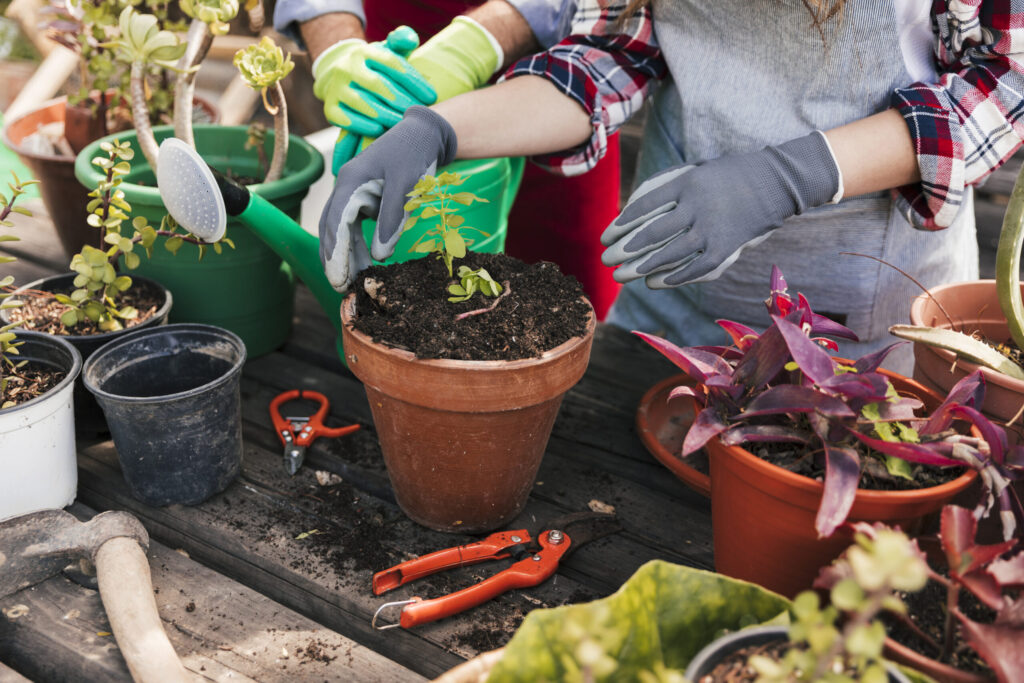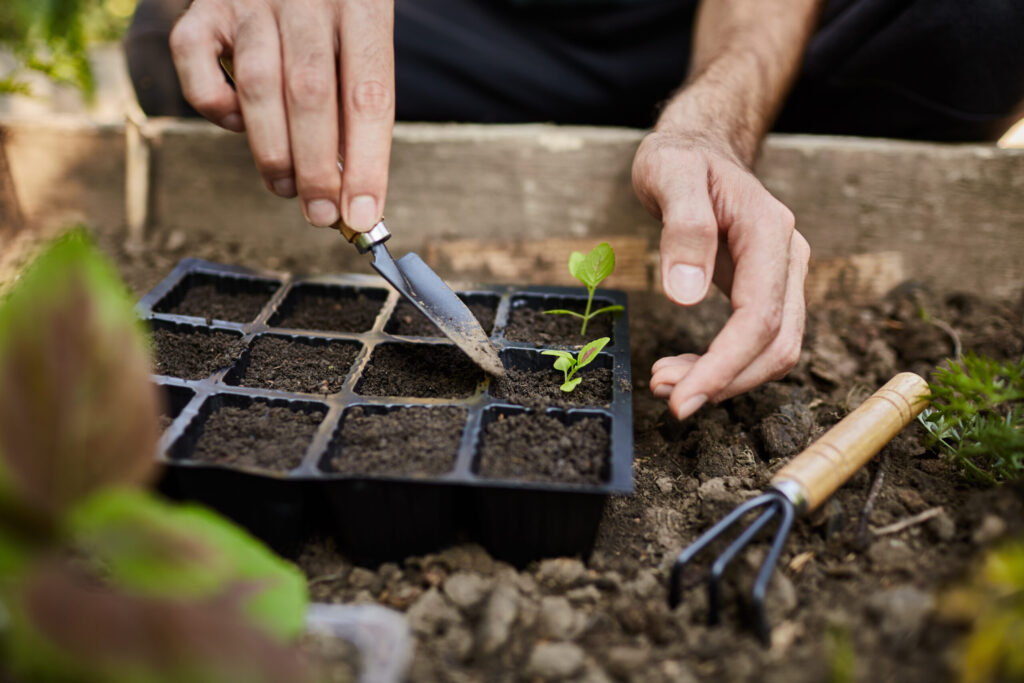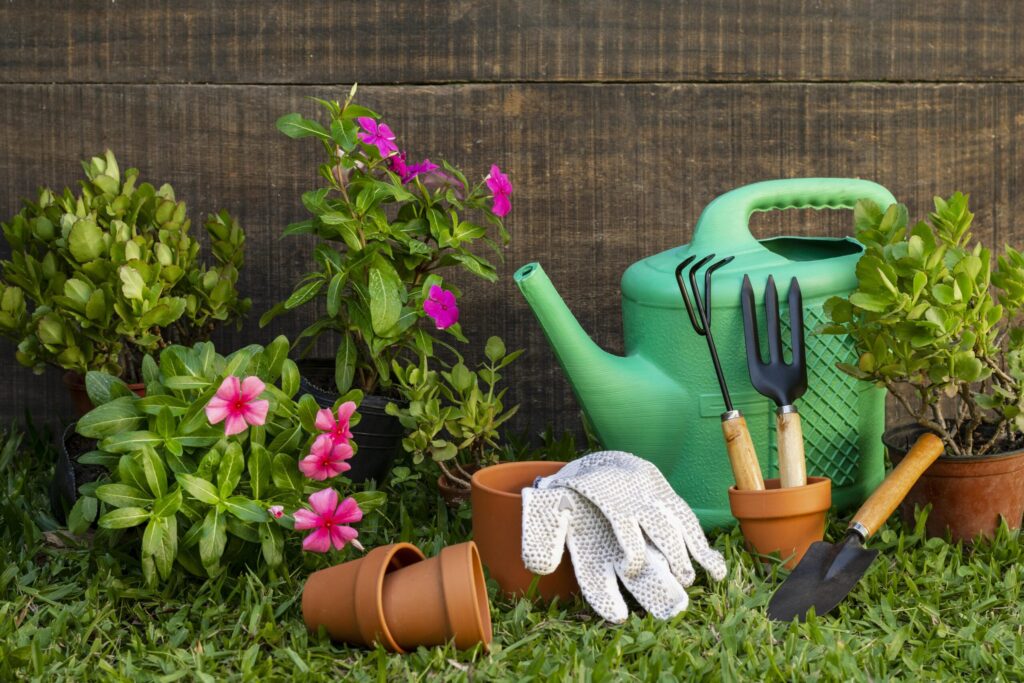In today’s busy, screen-filled world, finding moments of calm can be challenging. Yet sometimes, the best peace comes from simply working with plants. Mindful gardening—bringing your full attention to gardening activities—offers a natural way to quiet your mind while nurturing living things around you. Here’s how you can turn gardening from a chore into a peaceful practice that benefits your mental and physical health.
What Is Mindful Gardening?
Mindful gardening means being fully present while you garden. Instead of rushing through garden tasks while thinking about work or other responsibilities, you slow down and focus on what’s happening right now:
- Listening to birds singing
- Feeling soil between your fingers
- Noticing the patterns on leaves
- Smelling flowers and herbs
Unlike regular gardening that focuses mainly on results (perfect flowers or lots of vegetables), mindful gardening values the experience itself. It’s about connecting with nature without judging or rushing.
Benefits of Mindful Gardening
Research shows that tending plants offers many benefits:
Better Mental Health Spending time with plants outdoors can reduce feelings of depression and anxiety while improving your mood. Gardening can lower stress hormones, helping you feel more relaxed.

Photo by freepik
Happier Outlook People who garden regularly report feeling happier and more satisfied with life. Completing tasks like planting seeds or harvesting vegetables boosts happiness and self-confidence.
Sharper Mind Gardening improves focus and thinking skills through tasks that require attention and problem-solving. Planning and maintaining a garden involves careful attention to detail.
Connection with Others Community gardening can improve mood and mental health over time. Sharing gardening experiences creates bonds with others who have similar interests.
Getting Started with Mindful Gardening
You don’t need lots of space or experience to begin:
Start Small. Even a few pots on a windowsill can work. Begin with one simple task, like watering a plant or repotting an herb, and do it slowly. This keeps you from feeling overwhelmed.
Create a Peaceful Space. Design your garden area thoughtfully. Add elements that bring you peace—a comfortable seat, a wind chime, or a small water feature. Place each item with intention.
Leave Technology Behind. Put your phone on silent or leave it inside. Give yourself permission to disconnect from texts, emails, and to-do lists during your garden time.
Practice Mindfulness in the Garden
The heart of mindful gardening is using your senses and awareness. Try these practices:
Use All Your Senses
- See: Look closely at a plant as if seeing it for the first time. Notice the colors, shapes, and how light creates shadows.
- Touch: Feel different textures—soil between your fingers, rough tree bark, smooth leaves.
- Smell: Take a “scent tour” of your garden. Smell flowers, crush herbs between your fingers, or enjoy the earthy scent of soil after rain.
- Listen: Close your eyes and focus on garden sounds—birds chirping, leaves rustling, insects buzzing.
- Taste: If you grow edibles, pick something fresh like a strawberry or basil leaf. Eat slowly, noticing the flavor and texture.
Breathe With Purpose. Match your breathing to your movements. As you dig or plant, breathe in deeply and exhale slowly. This keeps you centered in the present moment.
Turn Garden Tasks into Meditation
Transform everyday gardening activities into mindful practices:
Mindful Watering: Instead of rushing through with a hose, use a watering can or water slowly by hand. Listen to the water trickle and watch it soak into the soil. Feel the weight of the water as you lift and pour.
Mindful Weeding: Kneel down and pull weeds individually, giving each your full attention. Notice the effort as you pull and the release as the weed comes free. Some gardeners imagine pulling out worries or negative thoughts along with the weeds.
Mindful Planting: Plant seeds or seedlings slowly and with care. Hold seeds in your palm first and appreciate how tiny they are compared to the plants they’ll become. Feel the soil between your fingers as you make a hole and place the seed inside.
Mindful Repotting: Try this meditative approach:
- Gather your supplies and find a comfortable position
- Close your eyes and take deep breaths—inhale for 4 seconds, exhale for 4 seconds
- Think of a positive plant-related phrase (like “I’m growing strong and healthy”)
- Gently remove the plant from its old pot
- Touch the roots carefully while continuing to breathe deeply
- Place fresh soil in the new pot using your hands
- Set the plant in its new home with care
- Add more soil around it while taking deep breaths
- Water slowly and repeat your positive phrase

Photo by freepik
Creating Garden Routines
Turning mindful gardening into a habit deepens its benefits:
Make It Regular: Try to garden at consistent times—maybe a quiet morning session or an evening wind-down. A regular schedule helps make mindful gardening a habit.
Create Simple Rituals: Start with a moment of stillness before gardening. Sit with your morning coffee and just notice what’s happening in your garden. Or take a daily walk around to observe what has changed.
Practice Gratitude: Take time to feel thankful for your plants, the earth, and natural helpers like bees and butterflies. This creates a deeper connection to your garden.
Mindful Gardening for Any Space
You don’t need a large garden:
Small Spaces: A few pots on a balcony or windowsill can become a mindful garden. Focus on the quality of attention you bring rather than the quantity of plants.
Indoor Plants: Houseplants provide the same opportunities for mindful care.
Community Gardens: If you don’t have outdoor space, community gardens offer places to practice mindful gardening while meeting others.

Photo by cookie_studio on Freepik
Let Go of Perfection
Nature isn’t perfect, and your garden doesn’t need to be either. If seeds don’t sprout or insects nibble leaves, practice accepting rather than judging. Approach gardening with curiosity and kindness, not strict goals. Remember that the process matters more than the outcome.
Finding Peace Through Plants
Mindful gardening combines physical activity, nature connection, and meditation in one practice. By bringing full attention to simple acts like planting, weeding, and nurturing, you create space for your mind to find peace amid life’s demands.
Whether you have acres of land or just a few windowsill pots, mindful gardening invites you to slow down, breathe deeply, and connect with the simple joy of helping things grow. As you nurture your plants, you nurture yourself too.











